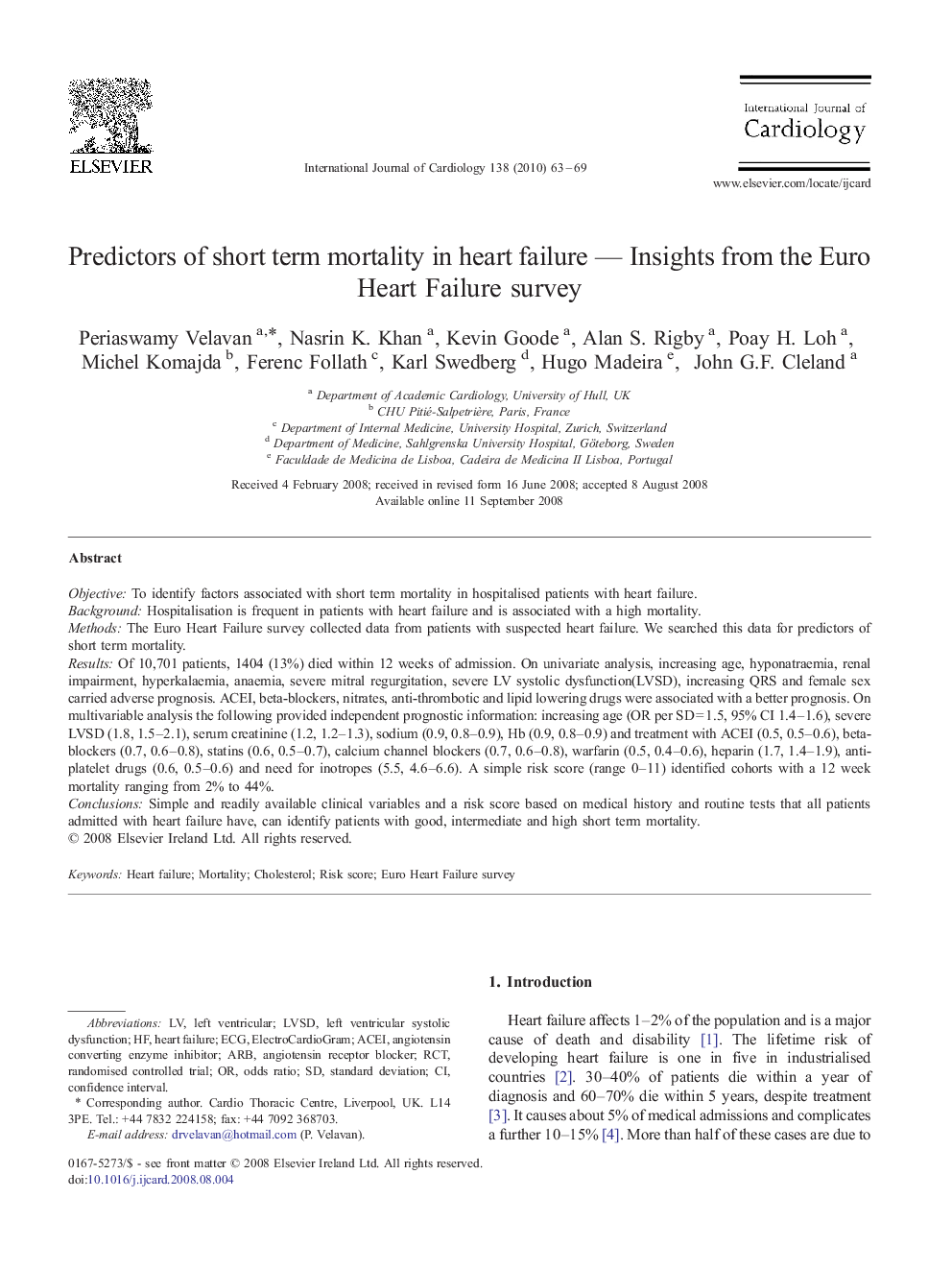| Article ID | Journal | Published Year | Pages | File Type |
|---|---|---|---|---|
| 2932400 | International Journal of Cardiology | 2010 | 7 Pages |
ObjectiveTo identify factors associated with short term mortality in hospitalised patients with heart failure.BackgroundHospitalisation is frequent in patients with heart failure and is associated with a high mortality.MethodsThe Euro Heart Failure survey collected data from patients with suspected heart failure. We searched this data for predictors of short term mortality.ResultsOf 10,701 patients, 1404 (13%) died within 12 weeks of admission. On univariate analysis, increasing age, hyponatraemia, renal impairment, hyperkalaemia, anaemia, severe mitral regurgitation, severe LV systolic dysfunction(LVSD), increasing QRS and female sex carried adverse prognosis. ACEI, beta-blockers, nitrates, anti-thrombotic and lipid lowering drugs were associated with a better prognosis. On multivariable analysis the following provided independent prognostic information: increasing age (OR per SD = 1.5, 95% CI 1.4–1.6), severe LVSD (1.8, 1.5–2.1), serum creatinine (1.2, 1.2–1.3), sodium (0.9, 0.8–0.9), Hb (0.9, 0.8–0.9) and treatment with ACEI (0.5, 0.5–0.6), beta-blockers (0.7, 0.6–0.8), statins (0.6, 0.5–0.7), calcium channel blockers (0.7, 0.6–0.8), warfarin (0.5, 0.4–0.6), heparin (1.7, 1.4–1.9), anti-platelet drugs (0.6, 0.5–0.6) and need for inotropes (5.5, 4.6–6.6). A simple risk score (range 0–11) identified cohorts with a 12 week mortality ranging from 2% to 44%.ConclusionsSimple and readily available clinical variables and a risk score based on medical history and routine tests that all patients admitted with heart failure have, can identify patients with good, intermediate and high short term mortality.
